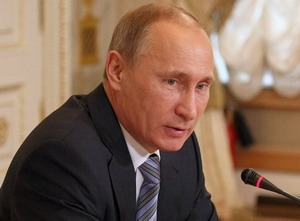Re: Regional geopolitics
KAZAKH PRESIDENT SUGGESTS ADMITTING TURKEY TO CUSTOMS UNION AND DISSOLVING EURASEC
by David Stepanyan
ARMINFO
Friday, October 25, 01:53
Kazakh President Nursultan Nazarbayev has suggested admitting Turkey
to the Customs Union and dissolving the EurAsEC.
"The Turkish President has asked me if his country can join the Customs
Union. Let's admit them. When I go abroad, people often ask me if we
are creating something like a new USSR or something to be controlled
by Russia. Perhaps if we admit Turkey, they will stop saying such
things," Nazarbayev said during a meeting of the Supreme Eurasian
Economic Council in Minsk on Thursday.
Concerning Armenia, he said that in order to be able to join the
Customs Union, that country will have to go through all the procedures
Belarus, Kazakhstan and Russia have already gone through.
Nazarbayev also suggested dissolving the Eurasian Economic Community
and enlarging the Customs Union, since the goals of the two
organizations are similar. He thinks that Kyrgyzstan and Tajikistan
may join the Customs Union as observers.
Russian President Vladimir Putin, in turn, pointed out that one
should not liquidate EurAsEC at once, because it will undermine
the legal framework of the Customs Union. He thinks that relevant
mechanisms should be worked out for that. In the meantime, he shared
Nazarbayev's opinion about the need to liquidate EurAsEC and said that
"one should not forget the partners in the Common Economic Space",
i.e. the other members of EurAsEC.
KAZAKH PRESIDENT SUGGESTS ADMITTING TURKEY TO CUSTOMS UNION AND DISSOLVING EURASEC
by David Stepanyan
ARMINFO
Friday, October 25, 01:53
Kazakh President Nursultan Nazarbayev has suggested admitting Turkey
to the Customs Union and dissolving the EurAsEC.
"The Turkish President has asked me if his country can join the Customs
Union. Let's admit them. When I go abroad, people often ask me if we
are creating something like a new USSR or something to be controlled
by Russia. Perhaps if we admit Turkey, they will stop saying such
things," Nazarbayev said during a meeting of the Supreme Eurasian
Economic Council in Minsk on Thursday.
Concerning Armenia, he said that in order to be able to join the
Customs Union, that country will have to go through all the procedures
Belarus, Kazakhstan and Russia have already gone through.
Nazarbayev also suggested dissolving the Eurasian Economic Community
and enlarging the Customs Union, since the goals of the two
organizations are similar. He thinks that Kyrgyzstan and Tajikistan
may join the Customs Union as observers.
Russian President Vladimir Putin, in turn, pointed out that one
should not liquidate EurAsEC at once, because it will undermine
the legal framework of the Customs Union. He thinks that relevant
mechanisms should be worked out for that. In the meantime, he shared
Nazarbayev's opinion about the need to liquidate EurAsEC and said that
"one should not forget the partners in the Common Economic Space",
i.e. the other members of EurAsEC.




Comment